|
“It’s not a matter of if, but when the next one will happen.” -Brian Atwater, geologist with the U.S. Geological Survey and University of Washington, to the Associated Press. “The amount of devastation is going to be unbelievable… people aren’t going to be ready for this.” -Rob Witter, coastal geologist with the Oregon Department of Geology and Mineral Industries. "There is no question that centuries of pent-up stress in the Cascadia Subduction Zone will eventually cause the plates to slip in a cataclysmic way, but there is no way of telling if that will be in our lifetimes or centuries from now. It could happen tomorrow morning, or it could happen in another 100 years." Quotes taken from Truth or Hype: Is Seattle Really at Risk for a Devastating Earthquake? If you are a born-and-raised Seattleite like me, you've heard warnings about "The Big One" your whole life. In elementary school, we did earthquake drills, we brought our Emergency Pack with a couple granola bars to school on the first day and that's about it. To me, "The Big One" is right up there with aliens landing on earth. It's a distinct possibility, but nothing has ever officially happened and how do you prepare for something like that anyway? It has always been logical to prepare for an earthquake, but I've never taken it seriously until now. NOW I'm a parent and thus responsible for making sure that my kids are safe and fed, regardless of the situation. Now that I've decided to prepare, to what extreme should I go? Should I keep a couple cans of extra tuna in the pantry, or should I dig a bunker in the back yard? I looked at three distinct groups of people to determine the best Earthquake Prep steps for me and my family. 1) Californians- they've been dodging earthquakes forever and they have their act together when it comes to preparation beforehand and an immediate plan of action during and after. 2) Mormons/ Latter Day Saints- The LDS community had always been taught to be self-reliant in times of "adversity." Adversity is a nice, generic term, which in this case, will apply to earthquakes. 3) Doomsday Preppers- This TV show on National Geographic explores the lives of otherwise ordinary Americans who are preparing for the end of the world as we know it. Unique in their beliefs, motivations, and strategies, preppers will go to whatever lengths they can to make sure they are prepared for any of life’s uncertainties. Before I executed my earthquake preparation plan, I had to address my lingering questions, do some research and make an educated guess at the answers to my own Q and A. FAQs (Asked by me, then Answered by me, my research and the Internets.) Q. How big will the quake be? A. Freakin' BIG. It will be one of the highest ever recorded, as the "Cascadia Fault (or Cascadia subduction zone, to use the more precise term) runs just off the coast from the northernmost tip of Vancouver Island past Seattle and Portland down to northern California. Scientists believe this tectonic fault is capable of creating extremely large earthquakes, topping 9.0 on the Richter scale, and that there is about a 40% chance of such a mega-quake happening in the next 50 years." (Sourced from "Is Seattle Ready for a Major Earthquake?") A quake of this magnitude may last around five minutes. Q. Will the house fall down? A. Probably not. My house was built in 1998. The real question is, will food stored indoors be accessible? Will I be able to collect my clothing, boots and contact lenses? If you live in a brick house, move, cause it's coming down. Or just go outside when The Big One hits. Q. What if we're not home when it happens? A. Start walking. Some Californians have their 72-hour kit (more on this below) in their car, along with a compact bicycle to ride home. The likelihood of you being somewhere that can accomodate you for three days until help comes is foolishly optimistic. If you can't walk home, make a plan now, to make a plan for a disaster. Q. What about the kids? A. Prepare for the worst, hope for the best. Keep a 72-hour kit in your car, one per person. Q. How long will we be stranded? A. Supposedly, federal aid should come in at least 72 hours. Local aid, by police and the fire department may take a couple days, as communication and well, everything will be in utter chaos. People will need to rely on each other and I'd rather have people relying on me, than the other way around. Best and Most Applicable Practices Californians:
LDS:
Now, I wouldn't presume to call anyone else crazy (Noah's Ark anyone?), but, well... Doomsday Preppers on Natoinal Geographic is all I have to say. These preppers are HARDCORE. They have "bug-out" plans where they stash their spam and guns into their van and hide out in the mountains. They remain anonymous on the show so we can't all go to their bomb shelter and steal their stuff. Hopefully, there wont be looting and rogue packs of desperate zombie-humans, but let's not dwell on it. (More thoughts on "Doomsday Preppers" from blog, Notes From The Outside. "Carry your survival cache in your head, and you're truly free.") Doomsday Preppers:
Just imagine if you were a Californian, Mormon, Prepper!! Safe. And. Sound. But I digress... My Seattle Earthquake Paranoia Plan of Action! What I chose and why I chose it. My "Off-site Earthquake Kit" is going into my garden shed in case the house falls down. I'm keeping water (Rule of thumb is 1 gallon per person, per day), some high-protein foods with a year+ shelf-life (clif bars, peanut butter, beef jerkey, almonds...), a PreparePack full of who-knows-what (First Aid stuff and a water purification system?), one outfit, eye glasses and a pair of old shoes... okay, I admit it, I also packed toothbrushes and a little toofpaste... and some baby shampoo. Inside my house, I'll keep more shelf-stable food than usual in the pantry. In my car, I have another PreparePack full of who-knows-what, two gallons of water and and Go-Bag. Go-Bag (from 72Hours.org) A component of your 72-hour Kit (below) is your Go-bag. Put the following items together in a backpack or another easy to carry container in case you must evacuate quickly. Prepare one Go-bag for each family member and make sure each has an I.D. tag. You may not be at home when an emergency strikes so keep some additional supplies in your car and at work, considering what you would need for your immediate safety.
72-hour Kit (from 72Hours.org) After a major disaster the usual services we take for granted, such as running water, refrigeration, and telephones, may be unavailable. Experts recommend that you should be prepared to be self-sufficient for at least three days. Store your household disaster kit in an easily accessible location. Put contents in a large, watertight container (e.g. a large plastic garbage can with a lid and wheels) that you can move easily. Your basic emergency kit should include:
That seems all pretty simple considering how much time I've wasted freaking out about being prepared. Another good suggestion from our LDS friends is to have a list, like, on actual paper (Paper! I know, right?) of important phone numbers and an out-of-state contact. I can't think of a place within 5 miles of my home, that might have a payphone. So, those numbers might not do me much good. I checked Amazon for an emergency radio and the reviews were so frightening that I didn't want to pay for anything that wouldn't work. During this supposed earthquake, I'll have to rely on rumors and fear-mongers for information. Also, please remember, dear readers, that I live inland. I'm not prepping for a tsunami. I'm worried about having potable water, food and shelter for my family and since my husband scoffs at my request for Earthquake insurance, I'm readying my family for life without water, heat, natural gas, electricity... and plumbing. If you live in Seattle, PLEASE read: 72Hours.org It's an awesome, simple Earthquake Prep site. Now that I'm prepared as much as I care to be, I can put Earthquake Preparedness to rest and get back to my life. I know I've done as much as I can to ready myself, and it's time to move on. Although I was a little embarrassed to write this post, thus revealing my Seattle earthquake paranoia, I decided to go ahead with it, with the hope that other, well-adjusted people will take the time, money and energy to prepare a disaster kit or plan for their family. Worst case, just have some water, beef jerky and a first aid kit out in the garage and in your trunk. If you need another kick in the pants to get started on your own disaster kit, know this: You need to get your act together and prepare for yourself because it's your job to be responsible for you and your family. The government will not be able to help for at least a couple days and you (presumably) don't want to be "that guy" breaking into a neighbor's house for food, because when people feel threatened, things turn nasty quickly. Here's more about My Seattle Earthquake Paranoia on Pinterest. That's all. xoxox
0 Comments
Your comment will be posted after it is approved.
Leave a Reply. |
Avant-Garde(n)Quick updates charting my novice and experimental, gardening adventures at home. Archives
September 2019
Categories
All
Click here for a link to other garden bloggers
|
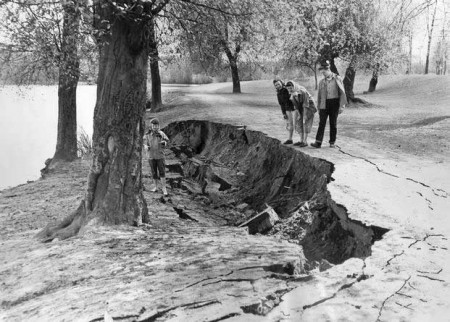
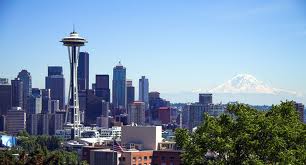

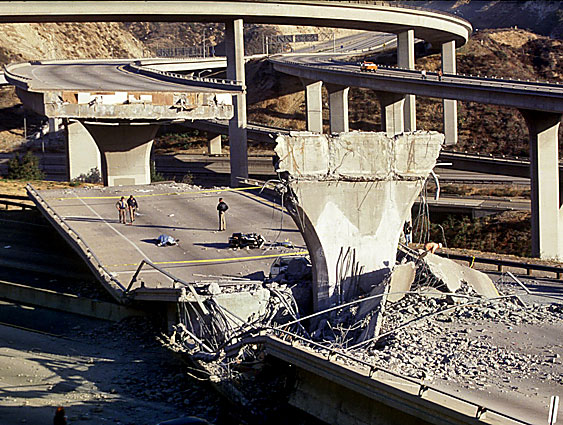
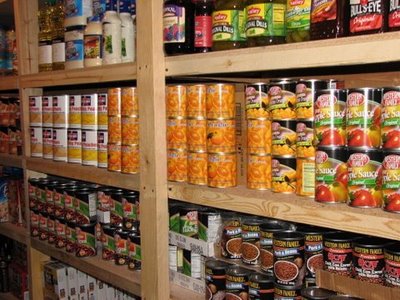
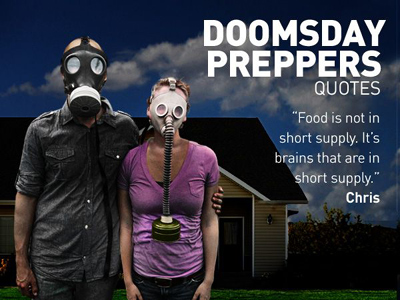
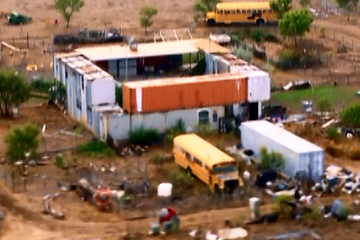
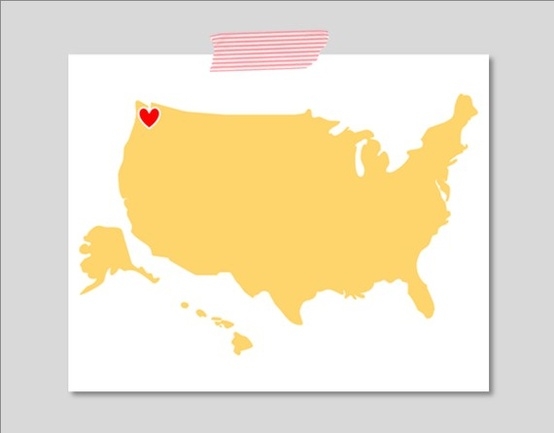
 RSS Feed
RSS Feed